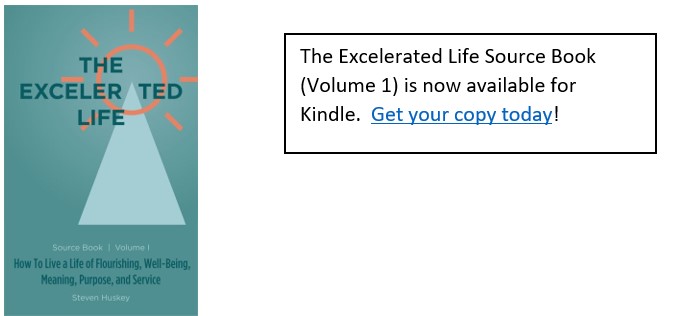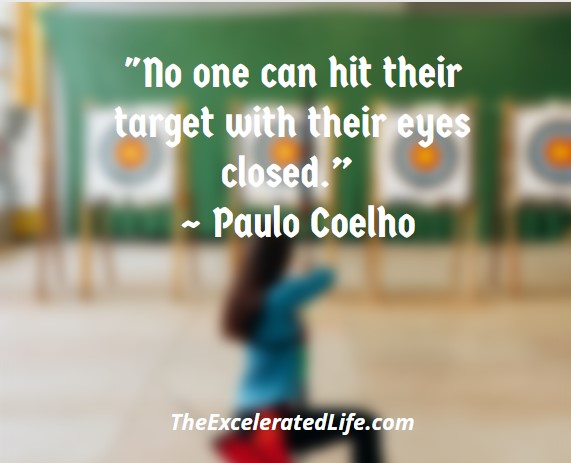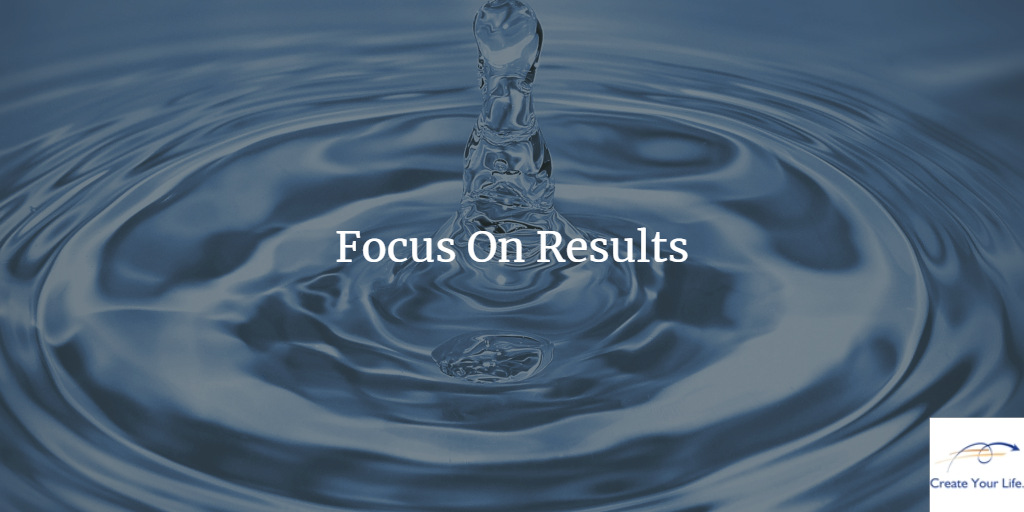You can’t do everything – even the important things, so focus on results. Every decision you make about where to use your limited resources is a statement about what you are focusing on. Decide what you really want, then align your actions with your true desire.
Title Photo by Aleksandr Slobodianyk
A Busy Week
It’s Monday morning and David has a big week planned. He has been tapped by his manager to give a presentation to his company’s executive committee, including the C-level executives. This could be a major step to a big promotion for David. Plus, his wife’s birthday is this week and David wants to make reservations at that new restaurant that’s been getting great reviews. And, unfortunately, his car started making a strange noise and needs to be checked by a mechanic.
Don’t Diffuse Your Focus
David needs to focus on what’s important. Sadly for him, he has not practiced this skill very much. He has never realized that he has a limited amount of time and that there are and will be some things that he just doesn’t have time to do. David’s tendency is to focus on whatever gets his attention at the moment, which is typically the thing that shouts the loudest.

. . .
Your life is the sum total of all the day-to-day decisions you make about where you spend your time, your energy, and your money. Every decision you make about where to use these resources is a statement about what you are focusing on. [Christensen] It’s like the old saying: “What you do speaks so loud, that I cannot hear what you say.” You can talk all day about what you are focused on, but your actions tell the true story.
Sometimes we think this small choice or that one won’t make much difference. But keep in mind this idea from Jeff Olson: success is a few simple disciplines practiced every day. [Olson] We must focus on what we really want in order to stop wasting our resources on things that aren’t as important to us. How do you know what you are focused on? Watch where your resources are flowing. Are they mostly supporting what you say you want?
“[B]ecause . . . your time is finite, doing anything requires sacrifice – the sacrifice of all the other things you could have been doing with that stretch of time. If you never stop to ask yourself if the sacrifice is worth it, your days will automatically begin to fill not just with more things, but with more trivial or tedious things.” [Burkeman] If you see that happening, you’ve lost your focus.
Distraction: The Anti-Focus
Unfortunately for David, the things that often shout loudest are various distractions; the ping of his e-mail box with a new message, the buzzing of his phone with a text, the pop-ups showing the latest news story or sports scores, the “few minutes” he takes to check in on social media – the few minutes that turn into an hour. How can David focus on the important things when he is surrounded by all these distractions?
. . .
“Philosophers have been worrying about distraction at least since the time of the ancient Greeks, who saw it less as a matter of external interruptions and more of a question of character – a systematic inner failure to use one’s time on what one claimed to value most. Their reason for treating distractions so seriously was straightforward, and it’s the reason we ought to do so, too: what you pay attention to will define, for you, what reality is.” [Burkeman]
Focus = life, Burkeman argues, because our experience of being alive is really the sum of all those things we pay attention to. When we spend (and I use that word explicitly) time on distractions, we are choosing to waste our valuable and finite time, which cannot be replaced. Distraction and focus are incompatible. You can’t focus on a job, a spouse, a child, or even doing something you enjoy if your attention and focus are constantly shifting to some distraction or other
“Mary Oliver calls this inner urge toward distraction ‘the intimate interrupter’ – that ‘self within the self, that whistles and pounds upon your door panels,’ promising an easier life if only you’d redirect your attention away from the meaningful but challenging task at hand, to whatever’s unfolding one browser tab away.” [Burkeman] Burkeman says when we give in to distraction we are trying to deny that we have limited control over our limited time.
We have about 4000 hours, more or less, to create a life. Ought we not focus on what is truly important?
The Joy Of Missing Out
The main reason David is compelled to constantly check his e-mail, his texts, the news, or the latest posts on his social media accounts is because he has been infected with FOMO.
. . .
I suspect you’ve heard of FOMO, the “fear of missing out”. It’s that nagging feeling that other people are “having more fun, living better lives, or experiencing better things than you are.” [Scott] And it is exacerbated by social media.
But we have a choice. Let the “joy of missing out” replace the “fear of missing out”. We can’t do everything. We have to choose where to focus our limited resources. And we must decide as wisely as we can where not to direct our focus and our limited time, money, and energy. The “joy of missing out” allows us to feel at peace with not doing those things.[Burkeman]
We have to learn to say no, not just to the minor stuff you maybe didn’t want to do in the first place, but as author and journalist, Elizabeth Gilbert writes, “It’s much harder than that. You need to learn how to start saying no to things you DO want to do, with the recognition that you have only one life, and you don’t have time and energy for everything.”

Questions Sharpen Your Focus
To quell the distractions, stop diffusing his focus, and do these things that he has said are important to him, David needs to ask himself some pointed questions. What is really important? What does he need to do to focus on those things?
. . .
I hope it’s obvious that we need to think deeply about where to focus our attention, and our resources. The only way we humans can think about something is to ask — and answer — questions.
Most of what passes as thinking for the majority of us isn’t really “thinking” at all. We remember the past or we look ahead to (or worry about) the future or maybe we plan for an upcoming task or project. But many of us don’t take the time to reflect or ponder or consider new ways of looking at a goal or a problem and coming up with creative ideas.
Earl Nightingale said, “Most people do not know how to think. When they are faced with a problem, they will go to any length to avoid thinking. They will ask advice from the most illogical people – usually people who don’t know any more than they do, such as next-door neighbors and members of their families. Very few of them have reference books. But much more important than that, only one in I don’t know how many thousands will take a large notepad, write the problem at the top of the page, and then deliberately turn on his thinking apparatus.” [Nightingale]
And how do we think? By asking, and then answering, questions.
Question For Clarification
Instead of jumping straight into a decision or an action, take a moment to pause and get clarification. “The right question, asked at the right time,” writes James E. Ryan in Wait, What?, “will open a door to something you don’t yet know, something you haven’t yet realized, or something you haven’t even considered.” [Ryan] Here are some basic questions you can ask and answer for yourself that will prove helpful in almost any situation.
- “What am I trying to do?” “How am I trying to do it?” “What are other ways I could accomplish the same result?”
- “Have I dealt with a similar problem before?” “What did I do then?” “How did it work out?”
- “What are my assumptions?” “What if they weren’t true? If they weren’t true, what would I do differently?”
Turn Ideas Into Action
So I stepped in to help David sharpen his focus. Here’s what I told him. [*]
To sharpen your focus, you have to first identify what is important to you, then “think through what is going well, what could go better, and why.” [Ryan]
We constantly get pulled in different directions by competing interests. And the easier it is to do something, the more we are driven to do it. Make the things you want to focus on easier to do. [Young]
When you are overwhelmed and paralyzed by too much of anything, good or otherwise, narrow your focus so you can get back on track. This practice can help:
- Make a list of all the options you have to choose from.
- Remove any items that you don’t want to do or that don’t move you in the direction of your goals and objectives. Prioritize the remaining items, tasks, and opportunities.
- Select one (and only one) item. If you use the prioritizing technique in the previous step, you should have one item on your list that is your top priority.
- You now have the one option that you intend to focus on. It is imperative that you take action on the task or opportunity right away, while your motivation is high. Take the first step. Then, find ways to make this the easier thing to focus on.
A Surprise Ending
David’s story turned out far differently than I anticipated. When we started out, I could foresee disaster for him: a derailed career, a disappointed wife, a broken-down car. Fortunately, David took seriously his need to focus on the results he wanted, put the distractions aside, and stop diffusing his attention. He took to heart the realization that there are things he won’t be able to do and took the time and effort to decide what was most important and to shine the spotlight of his attention on those few things. Naturally, David didn’t change overnight. But with practice over time, he was able to identify the two or three priorities in his life and focus on them.
. . .
If you, as David was, are bombarded with too much to do, if you have difficulty homing in on your important priorities, if you are infected with FOMO, if your days are filled with distractions, then maybe it’s time that you considered sharpening your focus. Realize that you can’t do everything – even the important things. Prioritize your list and pick the three most important things to focus on. Shut off e-mail notifications, put your phone in airplane mode, do whatever you need to do to minimize distractions. Decide what you really want, then align your actions with your true desire. That is embracing your Excelerated Life™!
Excelerated Focus™ — aligning your actions with your true desires — is one step in creating your Excelerated Life™, a life of flourishing and well-being, and a life of meaning, purpose, and service.
Read more about the Excelerated Life™.
What is something that helps you focus on your important things? What makes it difficult to focus on them?
Leave a comment below.
Footnotes:
[*] Since David is a character I created, I didn’t literally tell him these things. But as he was in my head with these other thoughts, he took advantage of them and, as I say, his ending turned out much differently than I originally anticipated.
Resources:
Burkeman, Oliver. Four Thousand Weeks: Time Management For Mortals. New York: Farrar, Straus and Giroux, 2021.
Christensen, Clayton M. How Will You Measure Your Life? New York: HarperCollins Publishers Inc., 2012.
Nightingale, Earl. “Lead The Field.” PDFDrive. Asaha Inc., . Web. Date July 17, 2020. PDF file.
https://www.pdfdrive.com/lead-the-field-e186040772.html
Olson, Jeff. The Slight Edge. Austin, TX: Greenleaf Book Group Press, 2005-2013.
Ryan, James E. Wait, What? And Life’s Other Essential Questions. New York: HarperCollins Publishers Inc., 2017.
Scott, PhD, Elizabeth. “How to Deal With FOMO in Your Life.” verywellmind. Dotdash Media, Inc., April 25, 2021. Web. March 18, 2022.
https://www.verywellmind.com/how-to-cope-with-fomo-4174664
Young, Sean D. Stick With It. New York: HarperCollins Publishers Inc., 2017.



One Reply to “Focus On Results”